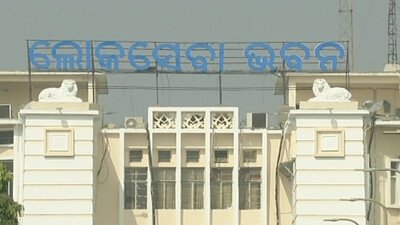Bhubaneswar- As Odisha continues to grapple with a worsening diarrhoea and cholera outbreak, a visiting Central health team held a crucial high-level meeting with top state officials at Loka Seva Bhawan in Bhubaneswar to assess the alarming situation and recommend immediate remedial measures.
What began as a localised outbreak in Jajpur district has now rapidly spread to multiple regions, with official figures confirming over 2,200 cases and 11 deaths. However, unofficial sources suggest the death toll could be as high as 21, pending verification.
The Central team, comprising experts from the Indian Council of Medical Research (ICMR), Food Safety and Standards Authority of India (FSSAI), Regional Medical Research Centre (RMRC), and National Health Mission (NHM), conducted extensive field inspections in the worst-hit areas. In their presentation, the experts identified contaminated water sources as the primary cause of the outbreak. Their report highlighted severe gaps in sanitation and clean drinking water access across affected districts.
Following the meeting, the state government is expected to take swift action based on the team’s recommendations. These include strengthening healthcare infrastructure, intensifying water purification efforts, and launching mass public awareness campaigns to halt the spread of infection.
In Jajpur, the epicenter of the outbreak, Chief District Medical Officer Dr. Bijay Mishra reported that 196 patients are currently under treatment, with 78 receiving care at the District Headquarters Hospital (DHH). He stated that while 37 new cases were admitted on Tuesday alone, the overall situation is slowly stabilizing. Two additional deaths at Byasanagar hospital are under investigation to determine if they are outbreak-related.
As the infection spreads, emergency health responses have been scaled up statewide. The Health Department has deployed 20 mobile health units and launched door-to-door awareness drives to educate the public about hygiene and safe water practices.
Further, four specialist teams comprising senior doctors and health advisors have been sent to high-risk blocks—Bhuban, Banki, Dharmasala, Badachana, and Bhandaripokhari—spanning the districts of Dhenkanal, Cuttack, Jajpur, and Bhadrak.
So far, one stool sample has tested positive for Vibrio cholerae, confirming the presence of cholera in at least one area. Yet, delays in releasing comprehensive test results of food and water samples have stirred unease among public health professionals. Local authorities suspect the outbreaks are being fueled by community feasts, consumption of overripe mangoes, and untreated water.
Taking stock of the situation, Chief Secretary Manoj Ahuja chaired a high-level review meeting on Tuesday to oversee the outbreak response in Jajpur, Keonjhar, Bhadrak, Cuttack, and Dhenkanal districts. He instructed district collectors to enhance water quality monitoring and step up community awareness drives, urging coordinated action to prevent further fatalities.
In Jajpur alone, the NHM has rolled out 40 mobile health teams, including eight medical specialists, who have organized 45 mobile health camps to provide immediate treatment access in remote and vulnerable areas.
So far, over 40 lakh halogen tablets, six lakh ORS packets, 400 packets of bleaching powder, and 3.4 lakh doxycycline tablets have been distributed. District administrations have been instructed to expedite the disinfection of public water sources, including wells and tube wells, to curb the spread of the infection.
Health authorities continue to monitor the evolving situation with caution as they race against time to contain the outbreak and prevent further loss of lives.



